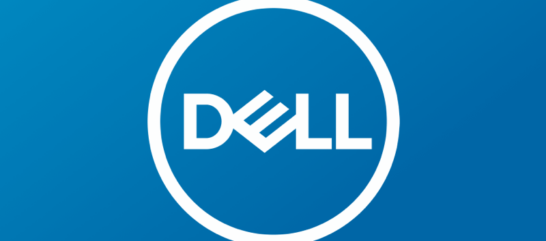The brand ambassador, historically employed by consumer businesses are beginning to play an important role in B2B organizations.
This especially has held true as buyers and consumers turn to social media platforms to research and see what friends, family, and colleagues are recommending.
Who is a brand ambassador, what can they do for your business, what to expect from brand ambassadors, and how to put an ambassador program in place is the focus of this post.
Feel free to jump to the desired section below:
- What is a Brand Ambassador?
- Why Should You Employ A Brand Ambassador?
- Who Can Be A Brand Ambassador?
- Examples of Brand Ambassador Programs
What is a Brand Ambassador?
A brand ambassador is someone who promotes a brand and its products to their network with the objective of increasing brand awareness and helping drive sales.
Historically a brand ambassador was typically a celebrity or someone with a good amount of name recognition who was paid for their efforts. You may call that influencer marketing or call them “influencers.”
Celebrities and other well-known personalities are still employed as brand ambassadors (just look at the beauty products industry), however, this is typically done by businesses that sell directly to consumers.
Yet, the brand ambassador definition can be said like this:
Any person who is hired by an organization to represent the brand positively and help market to new audiences. By doing so, these ambassadors help to increase brand awareness and sales.
However, for businesses that sell to other businesses, a brand ambassador is usually an employee of that organization.
In the past, notable ambassadors for B2B businesses have been founders and executives (think Elon Musk).
However, in recent years and with the rise of social media, non-executive employees of all types have become effective brand ambassadors.
Employees have the best insights into the company culture, products, services, mission statements, and beyond.
76% of individuals surveyed say that they’re more likely to trust content shared by “normal” people than content shared by brands.
Why Should You Employ a Brand Ambassador?
In this digital and social age, virtually every employee has a sizeable professional network. Besides that, many are already sharing about your company, whether executives realize or not.
98% of employees use at least one social media site for personal use, of which 50% are already posting about their company. (Weber Shandwick)
Between social media, email, and other services, B2B employees have a significant number of people they can talk to, and with whom they have rapport and trust.
Rapport, trust, influence – whatever you want to call it – is the key.
These are the currency of business: the more trust and influence you have with someone, the more likely you are to earn their business. This is the value of a brand ambassador.
The relationships your employees have with their networks – which likely include prospective customers, leads, and hires – are stronger than any relationship the people in their networks may have with your brand.
Putting a brand ambassador program in place allows you to leverage these relationships for the benefit of the ambassador and the organization.

Who Can Be a Brand Ambassador?
It depends on the objectives of your business (and your ambassador program), however –and in our experience — any employee has the potential to be a brand ambassador.
Employees in sales, HR, marketing, communications, product, engineering, and management can each serve as effective ambassadors.
Here are some examples of the results employees within these teams can drive:
- Sales: reduce sales cycle, new opportunity creation, increase revenue and lead pipeline
- HR: increase recruiting and retention, improved talent pool, builds your employer brand
- Marketing: lead generation, brand awareness, social shares, web traffic
- Product & Engineering: Thought leadership, product awareness
Generally, employees who regularly communicate with people outside the organization are the ones who will drive the greatest results.
On average and given the nature of their roles (e.g., the requirement to network with people outside of their organization), sales, marketing, and management are going to have the largest professional networks and can drive the most bottom-line results.
Calculate Your Employee Advocacy ROI 📈
Get a custom, shareable report highlighting the ROI you can expect to generate from employees sharing and creating content.
How do they drive results?
A brand ambassador drives results through their communications, either publicly (e.g., through social media) or privately through email, messaging phone, and other one-to-one channels.
The key to driving results is having an organized ambassador program in place. Like anything, in order to succeed there needs to be a plan, goals need to be clear, and it all needs to be managed and measured.
The CRM (e.g., Salesforce) provides a good corollary.
Without a CRM platform, it’s almost impossible to effectively manage a sales team of any size, no matter how many talented reps you have. Having a CRM allows you to manage and measure everyone’s’ efforts against your plan.
Same goes for a brand ambassador program: you need a plan, you need some tools, and someone to help lead and manage the program.
Where to start?
The sky’s the limit when it comes to putting an employee ambassador program in place.
Whether you choose to hire ambassadors or work with influencers, a great place to start is with your company’s workforce
With time and success, it is possible for your program to reach a point where the majority of your company’s employees are then participating.
However–and in the beginning–it’s best to take things one step. Start small, learn, iterate, show success, grow, and repeat.
In virtually every case, successful brand ambassador programs grow from the bottom up as opposed to top down.
Especially in the beginning, your company should focus on attracting employees to your program that actually want to participate and who have experience with social media and other modern communication and networking tools.
They’ll require less training and have an inherent understanding of the benefits (to them and the Org).
Examples of Companies with Brand Ambassador Programs
While it may be obvious as to some brands and companies that utilize brand ambassadors, it was important to share some examples.
These are examples of how companies view brand ambassadors differently and how some use employees instead for their programs.
Patagonia
Much of Patagonia’s brand ambassadors are Instagram celebrities, posting pictures of their adventures climbing mountains in the Alps, surfing breaks in Hawaii, and shredding powder in Squaw Valley. And all the while they are wearing their Patagonia gear.
Dell
The tech company put a larger emphasis on their internal workforce and channel partners as brand ambassadors, realizing the reach they would have on social media could be huge.
The tech company activated over 10,000 employees online, helping spread the brand and products to more audiences.
Lululemon
Brand ambassadors write the blogs for Lululemon, host free fitness events at the stores, and even model the clothes on their website.
They are real people, doing inspiring things, and they all wear Lululemon clothing while they do it. All of this is to create a culture around a brand that serves to make their audience love them more.
Coupa
Software company for business spend management, Coupa, also looked to their employees to become their brand ambassadors.
Similar to Dell, they knew employees were the best assets they had to spread their message online and connect with audiences.
The above are just a few examples of companies utilizing brand ambassadors and program in different ways.
Most companies in B2C or B2B are utilizing some form of brand ambassadors to amplify marketing, sales and beyond.
Final Thoughts
Understanding the value of brand ambassadors and how they can best boost your brand is important in this digital age.
Yet, like anything, putting an effective program in place takes creating a strategy and dedicating some time to it.
We have a lot of experience helping companies of various types and sizes put brand ambassador programs in place. No matter what stage you’re at – from concept to ready-to-roll – we’d be happy to help. Schedule some time to talk to our team here.















